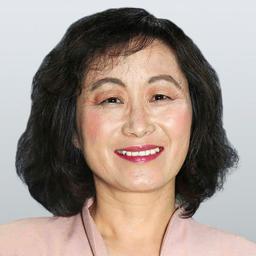OTTAWA—The building of the National Memorial to Victims of Communism is to go ahead, says Pierre Poilievre, despite the controversy surrounding its location.
Poilievre, the minister responsible for the National Capital Commission, says it’s important that Canada “recognizes the hundred million victims of communism that were killed by communist regimes” and that the memorial is “in a place people can see it.”
“We have 8 million Canadians who come from countries oppressed by communism, and Canada fought communism in the Korean War,” he said on April 7.
“It is entirely appropriate that we recognize all of that history and its link to Canada, with a touching memorial in a place people can see it in the nation’s capital.”
The proposed location for the memorial—a small plot of land kitty-corner to the Supreme Court of Canada and across the street from the Justice Department—has drawn criticism from opponents, including some Liberal MPs and Chief Justice of the Supreme Court Beverley McLachlin, among others.
Last week, 17 former presidents of the Canadian Bar Association got into the fray, decrying in an open letter “the decision to install a permanent political message on the very doorstep of the highest court in the land.”
“It is ill-conceived,” the letter states, “to add an imposing sculpture signalling a strong political message, controversial or not, literally in the face of the very institution which is the final arbiter in Canada of disputes involving Canadians, the federal and provincial governments, and foreign litigants.”
The former presidents claim the monument will cast a “shadow” over the “majestic stairs” of the courthouse.
But Toronto lawyer Asher Honickman, president of Advocates for the Rule of Law, a legal think-tank, takes issue with the past presidents’ position.
Honickman says it’s unlikely that anyone is going to think the memorial is an extension of the Supreme Court.
“The monument is not on the very doorstep,” he says. “I do not think anyone is going to make that assumption or observation because they are clearly going to be different structures on different plots of land.”
He adds that it’s “just plain false” to say that the memorial sends a political message.
“It is not a partisan political statement—it is not a statement in favour of one party’s view of Canada. It is not even a monument that condemns the theory behind communism. It is just a monument that puts forward a historical reality. So it is no more political than our own Charter of Rights and Freedom is. It is no more political than our entire constitutional system.”
Honickman notes that “communist regimes not only brutally murdered—they dispossessed, they otherwise oppressed large swaths of their societies, of their people.”
“The fact that there are millions of victims of communism is as well accepted as the holocaust. And it would certainly be inappropriate to treat the holocaust monument as being a political monument,” he says.
Conservative MP Wladyslaw Lizon, who grew up in communist Poland and was part of the solidarity movement there, has been involved in the project from the beginning. He feels the site is “the right location.”
“It’s a great place for this kind of monument—in front of a building that symbolizes the law, equality, the equal treatment of all citizens,” he says.
Lizon believes there is a big lack of understanding and lack of education on what communism is really about, and therefore the monument should be in a prominent place.
The 1999 book, “Black Book of Communism: Crimes, Terror, Repression,” concluded that communism caused the deaths of up to 100 million people worldwide and wrought much suffering and human catastrophe.
Yet, the authors noted that the crimes resulting from communism seem to be excused easily by the international community in comparison with the crimes committed by the Nazis.
Jung Chang, author of “Mao: The Unknown Story,” put Chinese communism under Mao Zedong as being responsible for more deaths than those under Hitler or Stalin—and that was in peacetime. Well over 70 million Chinese perished under Mao’s rule, Chang said.





